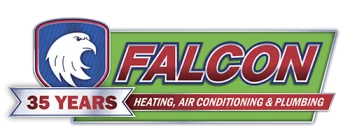Water is an essential part of our daily lives, from drinking and cooking to cleaning and bathing. But not all water is the same. Depending on where you live, the water flowing from your taps could be classified as either hard or soft. Understanding the difference between hard and soft water, identifying which type you have, and knowing how to address potential issues is crucial for maintaining the health and efficiency of your home’s plumbing system.
What Is Hard Water?
Hard water contains a high concentration of minerals, particularly calcium and magnesium. These minerals are picked up as water passes through rocks and soil, and while they are not harmful to your health, they can have various effects on your home’s plumbing, appliances, and even your skin and hair. The hardness of water is measured in grains per gallon (GPG), with water considered hard if it has more than 7 GPG of minerals.
Hard water can lead to a number of noticeable issues in your home. Some of the most common signs that you might have hard water include:
Soap Scum: When soap reacts with the calcium and magnesium in hard water, it forms a sticky, filmy residue known as soap scum. This can be difficult to remove from surfaces like shower walls, sinks, and bathtubs and can even stick to your skin, leaving it feeling dry and irritated.
Water Spots: If you notice spots or streaks on your glassware, dishes, or even your car after washing, hard water is likely the culprit. These spots are left behind when water evaporates, leaving the mineral deposits behind.
Mineral Buildup: Over time, the minerals in hard water can build up inside your plumbing system, reducing water flow and efficiency. This buildup, often seen as white or chalky deposits around faucets and showerheads, can also affect appliances like dishwashers and washing machines, shortening their lifespan and making them less efficient.
Discolored Laundry: Hard water can cause your clothes to become dingy or discolored after washing. The minerals in hard water can prevent detergent from lathering properly, leaving soap residue on fabrics and causing them to wear out more quickly.
Do I Have Hard or Soft Water?
If you suspect that your home has hard water, there are a few methods to confirm it. One simple way is to conduct a DIY water hardness test. You can purchase water hardness test kits from most home improvement stores or online. These kits typically include test strips that change color when dipped in water, indicating the level of hardness.
Another option is to contact a Falcon plumber. We offer professional water testing services, which can provide a more accurate assessment of your water’s hardness level. Falcon’s experts can also help you interpret the results and recommend the best course of action to address any issues.
Falcon Heating, Cooling, and Plumbing, offers a range of water softening systems tailored to meet the needs of Northern Virginia homeowners. Our team of experienced professionals can help you choose the right system for your home, install it efficiently, and provide ongoing maintenance to ensure it continues to operate effectively. With a water softening system in place, you can enjoy cleaner dishes, softer laundry, and a more efficient plumbing system.
Just call us at [csda_phone] to schedule your service. Meta Deta Lead-in: According to the U.S. Geological Survey, around 85% of American homes have hard water. This can cause damage to your home’s plumbing system, your laundry, or even skin and hair. Call Facon for water softening solutions.

